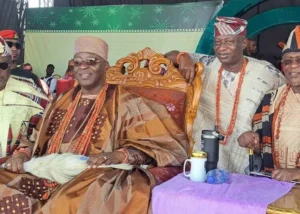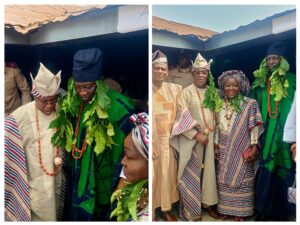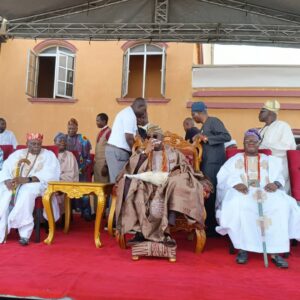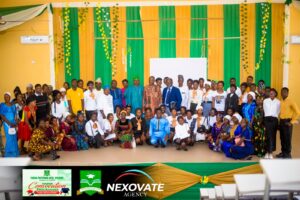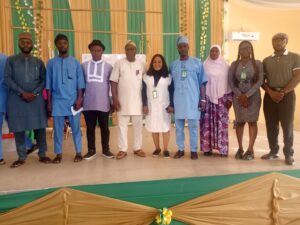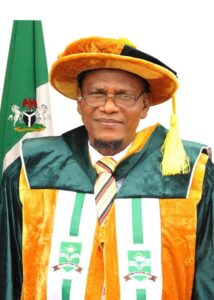
By Sunday ADEPOJU
Since November last year, the glacial hands of death, like bees, have continued stinging the Yoruba traditional rulers’ community, snatching more than ten imperial majesties, royal highnesses among many other high chiefs and chiefs in the land of Oodua, the progenitor of the Yoruba race. Of them all, about eight were from Oyo State, covering Ogbomoso, Oyo, Ibadan, Igbeti, Ikoyi-Ile, Oko-Ile, and Igangan. As a natural end of everybody, there were, also, other incidents of death of monarchs in many Yoruba states.
The Onigbeti of Igbeti, Oba Emmanuel Oyekan Oyebisi Afasegbojo III joined his ancestors in November last year after spending 17 years on the throne, beginning from 2004. The Soun of Ogbomoso, Oba Jimoh Oladuuni Oyewumi Ajagungbade III transited on December 12, 2021 at his palace in Ogbomoso at the age of 95. Oba Oyewumi held sway between October 24, 1973 and December 12, 2021. Later, the Asigangan of Igangan land, Oba Abdul-Azeez Adewuyi Aribiyan II, transited on Tuesday, December 21, 2021.
Shortly after crossing to the New Year, the Olubadan of Ibadan, Oba Saliu Adetunji Ajeoguguniso I, breathed his last in the early hours of Sunday, January 2, 2022 at the age of 93, reigning from 2016. After 28 days, the Oloko of Oko-Ile in Oriire local government area of the state, Oba Gabriel Adepoju, died at the age of 85 years on Sunday, January 30, 2022, having ascended the throne in 1997. Then came the turn of a classical king, the Onikoyi of Ikoyi-Ile, Oba Abdulyekeen Ayinla, Oladipupo IV on Tuesday, April 7, 2022 in the same local government area. He ascended the throne in 2006. In Isokan South local council development authority of Osun State, the Onikoyi of Ikoyi kingdom, Oba Yisua Bamitale Otunla Kodaolu I, gave up the ghost on Tuesday, April 19, 2022. He reigned for 35 years.
Another bombshell fell on Friday, April 23, 2022 when the venerated Iku Baba Yeye, the Alaafin of Oyo, Oba Lamidi Olayiwola Adeyemi III, joined Oduduwa, Oranmiyan and others after a brief illness at the Afe Babalola Teaching Hospital, Ado Ekiti at the age of 83 years, having reigned for 52 years on the throne, beginning from November 18, 1970. From the era of Oranmiyan, the first Alaafin (though not called Alaafin) to the present, Oba Adeyemi reigned longest.
Weeks ago, the Aseyin of Iseyin, Oba Abdul-Ganiy Adekunle Salau, transited. Among others, death snatched the souls of some chiefs like the Iba Iyaoje Alasa and the Onijeru in Ogbomoso axis of Oyo State, the same way the cold hand of death snatched many other high chiefs and chiefs across towns in Yorubaland.
Even with the widespread deaths, it is disheartening to note that an avalanche of the vacant stools of many of these towns have not been filled, even many with their declarations. The Olubadan stool has been filled by Oba Lekan Balogun, a senator that represented Oyo Central senatorial district between 1999 and 2003. Expectedly, all eyes have beamed their search light on the vacant stools. It has been reportedly said that there are internal wrangling surrounding the succession process on many of the stools. In Oyo, there appears to be palpable succession issue to the throne of the Alaafin. The same is the story in Ogbomoso over Soun’s stool that has been vacant for more than six months. Checks by PANNIGERIAN NEWS reveal that very significant number of the Yorubaland stools that became vacant recently have not been filled due to issues emanating from who ascends stools and from which royal family.
Some issues are, therefore, germane here: the difficulty in filling the stools despite that some towns have declarations; the effects of the delay on succession process in the towns and communities; the need, if any, for a review of existing declarations to take care of exigencies created by the long reign of some monarchs; the role of royal families vis-à-vis the kingmakers; the role of Ifa, god of divination, all in view of the critical role of traditional rulers in government.
From Osun State, a retired boss at the Nigerian Television Authority (NTA) and Prince of Orunto Obalufe in Ile-Ife, Fatai Adiyeloja, lamented the pranks greeting the selection process of traditional rulers in Yorubaland and the effect of delay in filling the vacuums. He said, “Worrisome as it is that frontline monarchs joined their ancestors in their numbers, it is a path we all must follow. It cannot but have a deleterious effect on our culture as some of these traditional rulers were icons of culture and repositories of tradition and history, Alaafin and Soun in particular.
“The Yoruba culture is, no doubt, threatened by incursion of foreign culture. More, in this era of globalisation, we must look beyond our traditional rulers in our quest to inculcate the right values in the younger generation. No effort must be spared in promoting our culture and tradition.”
Beyond the delay, Prince Adiyeloja stressed on the seeming discord within the traditional rulers’ community. “I feel peaceful co-existence will be better enhanced should the obas realise they all must die some day. Imagine Alaafin and the last but one Ooni and the immediate past meeting in heaven. How will they relate? Oba Adeyeye, however, started well by reiterating his commitment to Yoruba unity, playing down on superiority mentality. Certainly the passing on of the monarchs will have a great impact. The good legacies they left must be preserved and promoted.”
Kingmakers, govts, delays, implications
Among others, there have been series of reactions by people across Yoruba land on the issues of the delays, the role of kingmakers and governments as well as the implications on the individual communities and Yoruba nation at large.
The majority leader of the Oyo State House of Assembly, Hon. Sanjo Adedoyin, said there was nothing wrong with the existing declarations guiding the selection of monarchs. Talking about the monarchs in Oyo State, Hon. Adedoyin stated that the same thing applies to them all.
Asked on the role that the House of Assembly could play on the delay in enthroning the new kings, Adedoyin told PANNIGERIAN NEWS, “Very soon, it will be over. Nothing can be done by the House of Assembly. Nothing is wrong with the chieftaincy laws as presently operative. It will interest you to know that the entire South-West states are adopting the Oyo State Chieftaincy Laws, with just little alterations/amendments.”
Adiyeloja, a thespian, said, “There are laid down rules and regulations; only that we have allowed politicians to hijack the process. Money is at the centre and that is regrettable. Who do we blame than the ruling houses themselves? If there are no cracks in the wall, how do reptiles penetrate? It is good to struggle, contest, and lobby; all these must not be at the expense of allowing the best to emerge.”
Toeing the same path, another public affairs analyst, Prince Adeyemi Adegoke, decried that money has killed the whole essence of installing credible monarchs. Adegoke, who posited that the money bag menace is a societal issue, said, “The menace of money back poses a grave danger to the system. It is a product of the society we have found ourselves. The issue of money has silenced people from saying the truth. I, therefore, admonish our kingmakers to stand their ground in the defence of truth. Their role, according to the law, customs and tradition of the land, is to produce an acceptable king through consultations. They are to involve every tendency in the affected family.”
Though condemning the delays, Prince Hezekiah Oladeji, from Ogbomoso axis, explained that the delay in Soun’s replacement may be connected to the need to mend the loopholes in the process. Quoting him, “I think the government is trying to look at loopholes and that is why Soun’s stool has not been filled. However, the family should do away with corruption. There may be a situation where the right candidate may be tagged a slave in a family line.”
Adiyeloja also explained that Yoruba should always learn from history, saying: “We are talking about Soun’s replacement. Orimolusi in Ijebu Igbo’s battle took 28 years to resolve. I’m aware the Okere passed on before my redeployment to NTA Saki in 2012 and for over a decade, they could not reach a consensus.
“The royal battle on Orunto Obalufe stool in Ile-Ife, which I was a part of way back 2015, is still on, following the imposition of a wrong candidate. I’m from Orunto Aga ruling house whose turn it was and still is to produce candidate after Adogbodo, next to us is Jaojo before Ajagbusi, the royal dynasty of Idowu Adediwura, still parading himself despite the court injunctions warning him against so doing.
“Government should stop tampering with tradition. We don’t ever learn from history. The immediate past governor of Oyo State, Senator Abiola Ajimobi’s failed attempts to rewrite the tradition in Ibadan should serve as a lesson.”
Also of note is the effect of the delay in filling the stools of the paramount like Soun, Alaafin, and so on, on other traditional rulers within the jurisdictions of such rulers.
For instance, without installing the Soun, there may not be coronation of some kings and high chiefs like Onijeru of Ijeru, Onispa of Isapa, Alasa, Iba Iyaoje, among others in Ogbomoso and its environs.
The same story, interestingly, goes with others within the jurisdictions of other notable kings. Positions of some baales are also vacant and cannot be filled without, first, installing the Onikoyi of Ikoyi-Ile in Oriire local government area of Oyo State.
Prince Oladeji opined that the delay in filling the vacant stools may jerk the popularity of other lesser kings, with a summary that this may have implications in the nearest future. “The delay in filling Soun’s stool, for instance, may lead to the elevation of other kings who might have occupied lesser positions in hierarchy. Though having declaration is good, governments may decide to use veto. Declaration is good because it may not lead to the emergency of wrong candidates,” he said.
Dwelling on retardation of development, Prince Adegoke said, “The delay in filling vacant stools in Yoruba land retards development of the affected towns. If there is a project coming from the government, such a community without a monarch may be schemed out. If Oyo, Ibadan and Ogbomoso are competing for a project, Ibadan may get it because there is the Olubadan in place. With the absence of the monarchs on ground, many benefits may elude them.
“Secondly, there may be increase in crime. Beyond the conventional security, the traditional rulers have a way of maintaining peace and tranquility in the society.”
Relating to this, Ogbomoso, a once peaceful community, has now turned a dangerous one where kidnapping, killing thrive. The case of the abduction of killing of one Gbenga Owolabi, along a final year student of LAUTECH and a commercial okada rider is still fresh.
On the role of Ifa, a strong member of Olaoye ruling house in Ogbomoso, Prince Garuba Tewogbola Olaoye, emphasised that the role of Ifa in the selection process should not be discarded. Oladeji, however, said that it may be manipulated because of the decay in the process. “Ifa should be given a premium in the selection process,” Olaoye supported.

